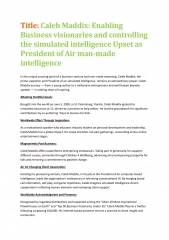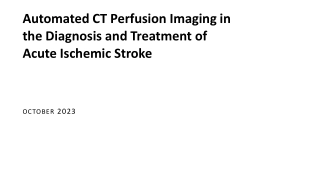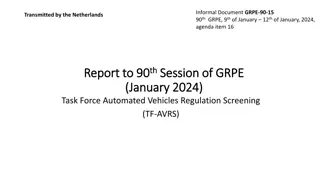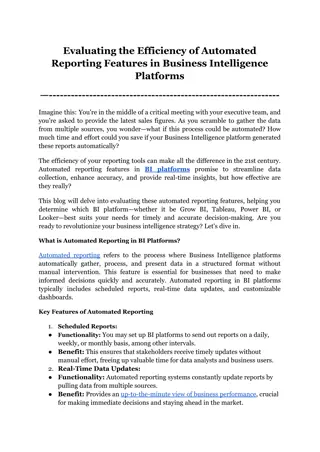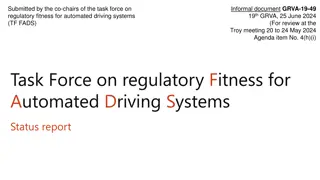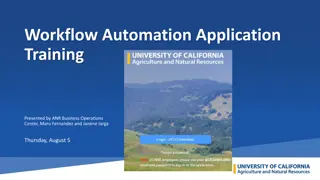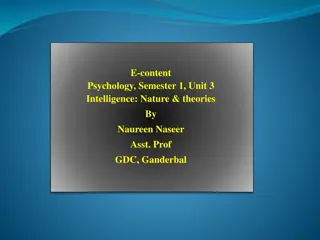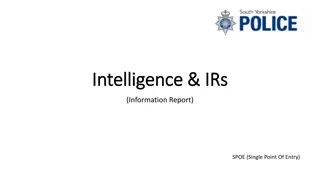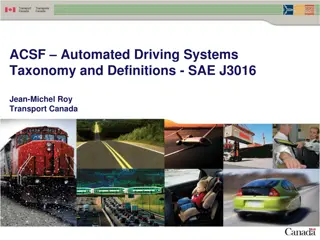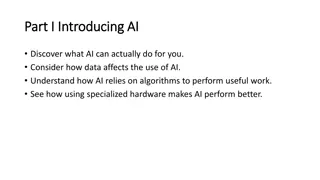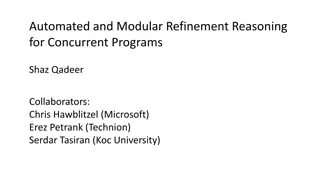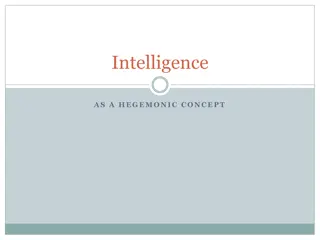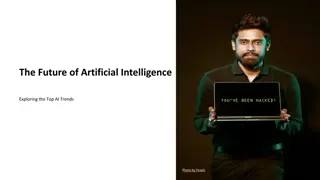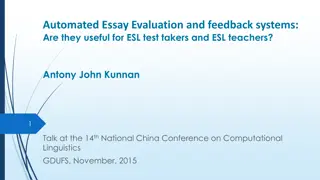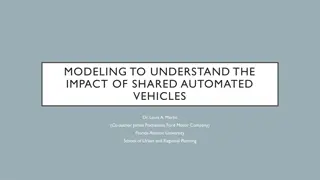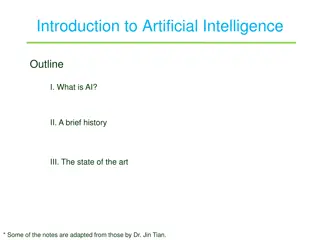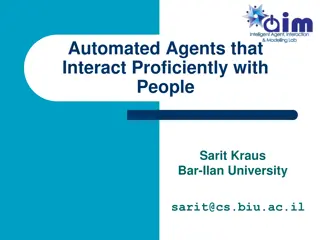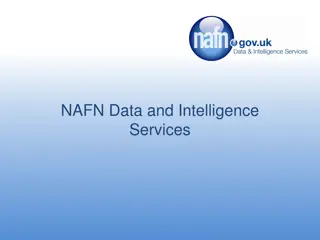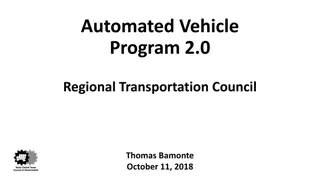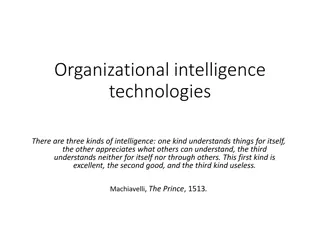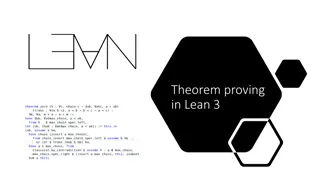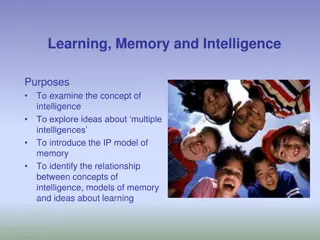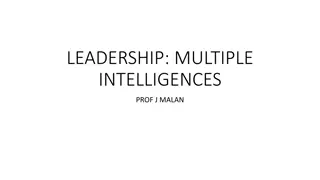Caleb Maddix: Graphing the simulated intelligence Wilderness and Moving Business
Find Caleb Maddix's rousing process from youthful creator to Leader of Air artificial intelligence. His influence is global as a pioneer in entrepreneurship and artificial intelligence. Investigate his obligation to charity and the progressive changes he imagines in conversational computer based int
5 views • 2 slides
What Is Business Intelligence and How It Turns Data into Dollars
Caption: Discover the transformative potential of Business Intelligence, from understanding its essence to harnessing Business Intelligence dashboard software for turning data into profitable decisions. Explore how this analytical tool revolutionizes data utilization for financial growth and learn w
4 views • 4 slides
Artificial Intelligence Courses Online | Artificial Intelligence Training
AI Online Training - Visualpath provides top-quality Artificial Intelligence Training conducted by real-time experts. Our training is available worldwide, and we offer daily recordings and presentations for reference. Call us at 91-9989971070 for a free demo.\nWhatsApp: \/\/ \/catalog\/919989971070
2 views • 11 slides
Automated CT Perfusion Imaging in Acute Ischemic Stroke: Overview
This presentation delves into the significance of automated CT perfusion imaging in diagnosing and treating acute ischemic stroke. It covers essential information such as the burden of stroke in Ontario, the critical aspect of time in stroke treatment, hyperacute stroke treatment goals, and the impo
5 views • 41 slides
Theories of Intelligence: Monarchie vs. Spearman's Two-Factor Theory
The Monarchie Theory of Intelligence posits a single factor of intelligence, while Spearman's Two-Factor Theory divides intelligence into a general ability (G-factor) and specific abilities (S-factors). The implications of these theories on educational practices are discussed, shedding light on the
11 views • 25 slides
Exploring the impact of automated indexing on completeness of MeSH terms
This study delves into the effects of automated indexing on the thoroughness of MeSH terms. It addresses the novelty of automated indexing, its implications for teaching, questions raised by students, observed missing index terms, and the significance of MeSH in practice. The explanation of how auto
4 views • 33 slides
Task Force Automated Vehicles Regulation Screening Report
The Task Force Automated Vehicles Regulation Screening (TF-AVRS) conducted multiple meetings and screenings to evaluate regulations and terms related to automated vehicles. The report outlines the screening process, considered items, results, and future plans for regulation screening in the automoti
0 views • 9 slides
Evaluating the Efficiency of Automated Reporting Features in Business Intelligence Platforms
We evaluate the efficiency of automated reporting features in leading Business Intelligence platforms such as Grow BI, Tableau, Power BI, and Looker. Discover how these tools can streamline data collection, enhance accuracy, and provide real-time insights to drive informed decision-making.
0 views • 7 slides
Reforming Intelligence Laws for Effective Oversight and Accountability
Urgent completion of the National Security Strategy and architectural review is crucial before amending intelligence laws. The establishment of a dedicated Ministry of Intelligence, clarification of definitions, and enhancing oversight mechanisms are recommended to address gaps and improve the intel
1 views • 10 slides
Task Force Report on Regulatory Fitness for Automated Driving Systems
The co-chairs of the Task Force on Regulatory Fitness for Automated Driving Systems presented an informal document at the 19th meeting of GRVA, outlining the context, purpose, and status of regulations related to automated vehicles. The report focuses on the need for a regulatory environment for aut
1 views • 10 slides
Automated Workflow Forms Training & Implementation Overview
Learn about the automated workflow forms training and implementation presented by ANR Business Operations Center on August 5th. Understand the purpose, steps, and support available for the process involving various forms related to funding, purchases, and more. Get insights into the automated routin
2 views • 41 slides
Intelligence: Theories and Types Explored
Intelligence is the global capacity to comprehend the world, think logically, and utilize resources effectively. This content delves into the nature of intelligence, explaining intelligent behavior and discussing different types of intelligence such as verbal comprehension, spatial visualization, an
0 views • 13 slides
Intelligence: IQ and Emotional Intelligence in Education
The concept of intelligence is explored through IQ testing and emotional intelligence in education. IQ, based on cognitive abilities, helps in assessing academic potential and identifying learning barriers, while emotional intelligence (EQ) plays a crucial role in understanding and managing emotions
3 views • 13 slides
Overview of Intelligence Testing in Psychology: Insights and Perspectives
Delve into the fascinating realm of intelligence testing as explored by Dr. Ranjan Kumar, covering the significance of IQ tests, the concept of intelligence, historical perspectives on intelligence measurement, and key figures like Alfred Binet and David Wechsler. Gain insights into the evolution of
3 views • 52 slides
Intelligence Reporting and Assessment in Policing
Intelligence plays a crucial role in police decision-making by providing evaluated information. This report outlines the National Intelligence Model, criteria for assessing intelligence relevance, accuracy, and value, as well as guidelines for information submission in law enforcement settings. It e
0 views • 8 slides
Artificial Intelligence and Intelligence in Computers
Artificial Intelligence (AI) aims to create intelligent computer systems that mimic human behaviors. It involves algorithms derived from human intelligence to make computers smarter and more useful. This includes the ability to acquire knowledge, think, reason, and exhibit goal-oriented behavior. Th
1 views • 13 slides
Staff Mission and Intelligence Analysis Overview
Intelligence and staff roles within an organization are crucial for operational success. The Intelligence ACOS is responsible for providing intelligence support to operations, while the Staff Weather Officer coordinates weather services through the G-2 (S-2). The Movement and Maneuver ACOS, S/G-3, f
0 views • 34 slides
Automated Driving Systems Taxonomy & Definitions - SAE J3016 Overview
This overview discusses the alignment of international conventions regarding definitions of Automated Driving Systems (ADS) as outlined in SAE J3016. It covers the purpose, availability of SAE J3016, differences in regulations, the use of "autonomous" vs. "automated," and the concept of requesting h
4 views • 12 slides
Update on Categorization of Automated Vehicles by OICA and CLEPA
OICA and CLEPA are updating the categorization of automated vehicles, introducing new subcategories and refining definitions for driverless and dual-mode vehicles. The work aligns with ongoing efforts in related groups and aims to enhance clarity in classifying different types of automated vehicles
0 views • 12 slides
Artificial Intelligence: A Comprehensive Overview
Explore the realm of Artificial Intelligence (AI) through its definitions, historical context, and practical applications. Delve into the core elements of AI, including discerning intelligence, learning, reasoning, and understanding the role of algorithms and specialized hardware in AI performance.
0 views • 16 slides
Insights into Theories and Definitions of Intelligence
Various psychologists throughout history have defined intelligence in different ways, highlighting aspects such as judgment, reasoning, adaptation, problem-solving, and overall mental capacity. From Binet to Gardner, each perspective sheds light on the diverse facets of intelligence, emphasizing the
3 views • 52 slides
Enhancing Incident Response Through Threat Intelligence
Explore the importance of threat intelligence in incident response, covering aspects such as understanding adversaries, assessing risks, evaluating threats, and leveraging strategic intelligence. Learn how organizations can benefit from a proactive approach to cybersecurity by utilizing threat intel
1 views • 18 slides
Automated and Modular Refinement Reasoning for Concurrent Programs
This research explores automated modular refinement reasoning for concurrent programs, focusing on safety and correctness in operating systems and applications. Projects like Verve and Ironclad aim to achieve end-to-end security through formal verification tools and small trusted computing bases. Th
1 views • 12 slides
Unpacking the Notions of Intelligence and Social Hegemony
This presentation delves into the complex concepts of intelligence and social hegemony, exploring historical perspectives, scholarly debates, and folk beliefs. It challenges the hegemonic nature of contemporary intelligence definitions and examines the power dynamics within civil society. Through a
1 views • 14 slides
AI Trends in Foreign Intelligence, Artistic Creation, Communication, and Smart Devices
AI is transforming various sectors such as foreign intelligence analysis, artistic creation, task assistance, and smart devices. Advancements in AI technology offer benefits like faster analysis in intelligence, automated artistic processes, improved communication through AI technology, and seamless
0 views • 11 slides
Automated Essay Evaluation Systems in ESL Education
Automated Essay Evaluation (AES) systems are increasingly utilized in ESL education to provide automated scores and feedback on writing assignments. These systems employ mathematical models to assess organizational, syntactic, and mechanical aspects of writing, offering a shift from traditional essa
0 views • 45 slides
Impact of Shared Automated Vehicles on Transportation System Performance
This study by Dr. Louis A. Merlin and James Fischelson explores the potential impact of shared automated vehicles on transportation systems. By reviewing 39 papers and simulations, the research delves into the implications of new shared automated modes, such as automated taxis, shuttles, and shared
0 views • 38 slides
Introduction to Artificial Intelligence: A Comprehensive Overview
Artificial Intelligence (AI) is a fascinating field that aims to make machines think and act intelligently. The outline covers the definition of AI, its historical development, and the current state of the art, including the capabilities required to pass the Turing test. The notes touch on various a
0 views • 19 slides
Automated Signature Extraction for High Volume Attacks in Cybersecurity
This research delves into automated signature extraction for high-volume attacks in cybersecurity, specifically focusing on defending against Distributed Denial of Service (DDoS) attacks. The study discusses the challenges posed by sophisticated attackers using botnets and zero-day attacks, emphasiz
0 views • 37 slides
Advancements in Automated Agents for Efficient Interaction with People
Explore the diverse applications of automated agents in various domains such as buyer-seller interactions, cultural studies, conflict resolution, medical applications, sustainability efforts, decision-making support, and training simulations. Discover how these automated agents are revolutionizing p
0 views • 20 slides
NAFN Data and Intelligence Services Overview
NAFN Data and Intelligence Services, established in 1996, is a comprehensive hub for data and intelligence solutions, serving around 90% of local authorities. Operating as a not-for-profit organization funded by membership and grants, NAFN offers various services such as credit reporting, authorised
0 views • 16 slides
Regional Automated Vehicle Program 2.0 Overview
Regional Automated Vehicle Program 2.0, led by the North Texas Regional Transportation Council, aims to facilitate the deployment of automated vehicles (AVs) in public entities. The program consists of various projects such as AV planning, cost coverage, and fund allocations for priority deployments
0 views • 10 slides
Importance of Emotional Intelligence in Religious Leadership
Religious leaders benefit greatly from high emotional intelligence, leading to better performance, increased staff retention, and a more positive work environment. Emotional intelligence plays a vital role in pastoral ministry, enhancing emotional care for congregants. Educational programs focusing
1 views • 15 slides
Organizational Intelligence Technologies
Organizational intelligence technologies involve three kinds of intelligence - understanding independently, appreciating what others can understand, and understanding neither for itself nor through others. This concept emphasizes the importance of collecting, storing, processing, and interpreting da
0 views • 47 slides
Automated Program Repair and Anti-Patterns in Search-Based Program Repair
Automated program repair aims to fix bugs in software through fault localization, patch generation, and patch validation using search-based techniques. This research discusses anti-patterns, previous work, repair patterns from human patches, and challenges such as weak oracles in automated program r
0 views • 20 slides
Insights Into Charlie's Journey: A Tale of Intelligence and Regression
Follow Charlie Gordon's transformative journey as he undergoes an operation to increase his intelligence, leading to unexpected consequences. The story unfolds through diary entries, revealing the impact on his life, relationships, and understanding of intelligence. Themes of humanity, growth, and t
0 views • 16 slides
Automated Theorem Proving in Lean
Dive into the world of automated theorem proving in Lean with a focus on formal verification, history, and the use of logic and computational methods. Explore how programs can assist in finding and verifying proofs, as well as the significance of interactive theorem provers. Discover the evolution o
0 views • 35 slides
Concepts of Intelligence, Memory, and Learning
This presentation delves into the concept of intelligence, explores multiple intelligences, introduces the IP model of memory, and examines the relationship between intelligence concepts, memory models, and learning ideas. It discusses various understandings of intelligence, challenges the fixed int
1 views • 20 slides
Successful Intelligence in Leadership by Prof. J. Malan
Successful intelligence in leadership involves a balance of analytical, practical, and creative abilities. Fiedler and Link suggest that intelligence predicts leadership success under low-stress conditions, highlighting the interaction between stress, intelligence, and leadership. Leaders must analy
1 views • 33 slides
Advances in Automated Mercury Speciation Measurement Methods
This content delves into the world of automated mercury speciation measurement methods, focusing on accuracy, calibration, and historical perspectives. It discusses challenges in measuring GEM, PBM2.5, and GOM with hourly resolution, highlighting the significance of continuous monitoring in various
0 views • 23 slides
